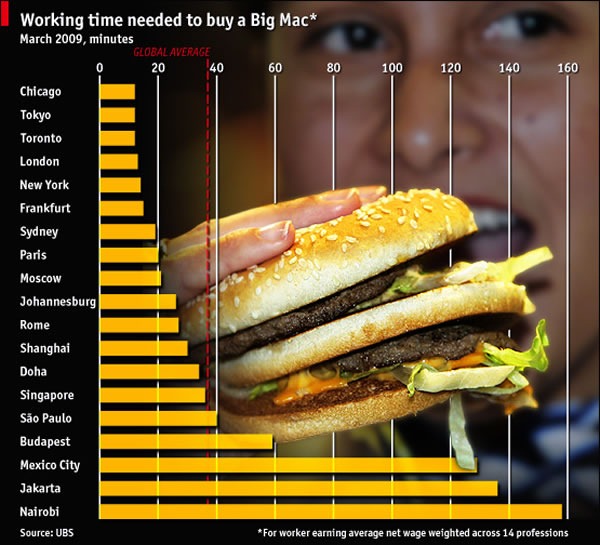Here, courtesy of the Economist, is a chart showing how long it takes for a workers in various cities all over the world, earning the average net wage to earn the price of a Big Mac in their respective cities. Note that Accordion City – sometimes referred to as “Toronto” – is one of the three best places for a Big Mac aficionado to live, since it takes us only 12 minutes to earn two all beef patties, special sauce, lettuce, cheese, onions, pickles on an sesame seed bun:
The Economist’s Big Mac Index was introduced by the magazine in 1986 (the year I started reading it, coincidentally) as a way to make it easier to visualize the differences among different countries economies, in terms of wages and purchasing power. Using Big Macs as an economic yardstick was a clever choice; they’re the same everywhere and available in many countries when it was first published 23 years ago, and McDonald’s has set up in more countries since then (remember, 1986 was before glasnost).
The index isn’t without its flaws. For starters, McDonald’s is perceived differently in different countries. Here in Canada, as with the U.S., it’s a cheap, working-class restaurant, while in other countries, eating there is considerably more expensive and exotic than having the local fare. However, there aren’t too many other products that are available worldwide that are made with local materials and yet universally uniform.
As for actually eating Big Macs: I used to love them as a teenager, but it’s been ages since I had one. Sometime in my late 20s, I noticed that eating just one made me feel nauseated. I suppose it might be because they changed the recipe, but I strongly suspect the real change was in me; I no longer had the same metabolism. I’m happy to spend a little money on a burger and not feel like hurling.
